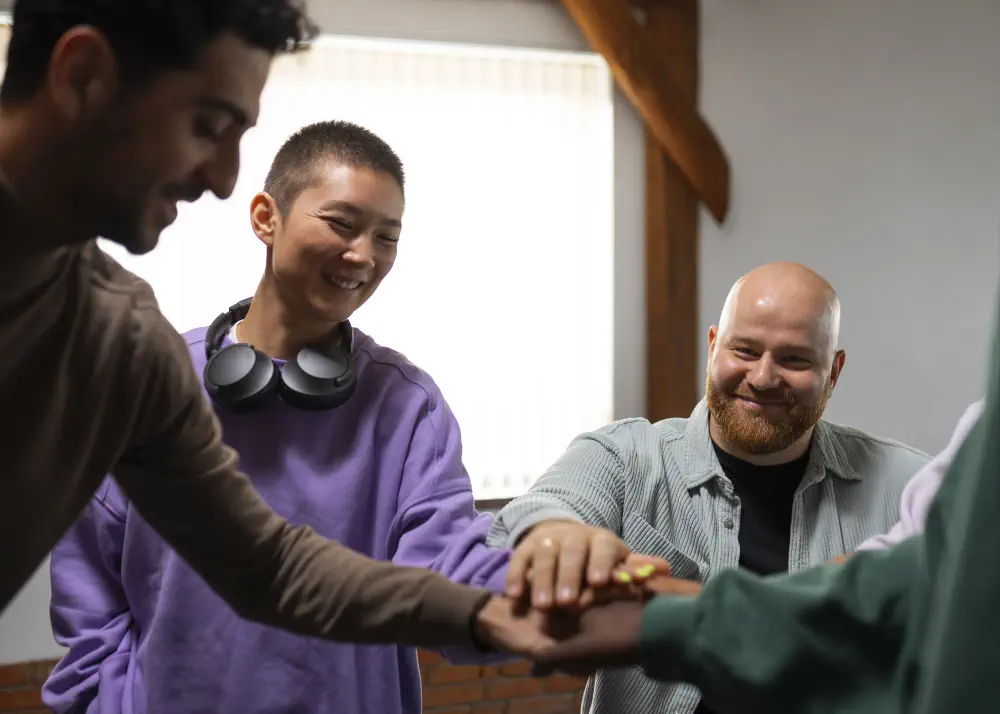We offer medical detox and multiple addiction treatment options in our
luxury treatment centres in Port Hope, Cobourg, and Ottawa.
Steps to Success on Recovery Road
Recovery from drug addiction is the beginning of a bold, transformative decision to take control of your life and change. No matter whether it is physical, emotional, or mental, this journey requires a lot of courage, determination, and deep commitment to rediscovering strength. It is not an easy path, but if trodden in the right manner, it can lead to incredible growth and newfound balance.
Key Takeaways
- Start with Self-Awareness: Recognize triggers, patterns, and emotions to navigate recovery with clarity.
- Set Realistic Goals: Small, achievable steps build confidence and long-term progress.
- Build a Support System: Surround yourself with supportive friends, family, and professionals.
- Develop Healthy Coping Strategies: Replace negative habits with exercise, mindfulness, and self-care.
- Focus on Daily Progress: Stay consistent, celebrate small wins, and commit to steady improvement.
In this article, we will outline practical steps to take responsibility, develop resilience, and press forward with purpose. Each step, from understanding your current state to setting achievable goals and developing healthy coping strategies, is designed to empower you on this transformative journey. With the right mindset, the support of others, and tools tailored to suit your needs, recovery isn't just a possibility but a reality to be embraced.
Start with Self-Awareness
Recovery from drug addiction begins with knowing where you are and why you are here. Take some time to take stock of where you are: emotionally, physically, and mentally. Identify triggers or situations that might have led to a setback or struggle. Reflect on recurring patterns in your behaviour or thoughts, and consider how they impact your progress.
Mindfulness can help you stay present and be aware of your emotions without judgment. Journaling, meditation, or simply quiet moments of introspection can reveal valuable insights. By cultivating self-awareness, you create a strong foundation to navigate recovery with clarity and purpose.
Set Achievable Goals
Recovery is a process that is best approached one step at a time. Start by setting small, realistic goals that consider your current abilities and life circumstances. These goals should be specific and manageable, such as committing to a daily walk, practicing a relaxation technique, or attending a support group meeting.
It is always celebrating the smallies. All these little milestones help to enhance your confidence and remind you of how far you have come. Be it maintaining a week of self-care or reaching out for help, every effort put in or growth made should be acknowledged.

So, how to evaluate the success rate of your treatment? You build a pathway to long-term recovery by focusing on achievable goals. These small victories create momentum that will help you stay motivated and focused on your bigger goals.
Steps for the Recovery Success
- Set realistic goals: Divide your recovery rehab process into manageable steps that can be accomplished with your current abilities and situation. Be simple in setting a goal, like having a daily walk, trying some mindfulness exercises, or even attending support groups.
- Celebrate small wins: Identify and reward yourself for each step taken, no matter how minimal. Every successful instance, like one week of self-care or calling for help, gives way to more confidence in further reinforcing this process.
- Building momentum: Take the small victories and use them to build momentum – the sense of moving forward. These little victories will be what continue to motivate and keep you going while working up to the more substantial long-term goals of recovery.
- Be flexible: Adapt your goals and strategies when necessary. Recovery does not always go in a straight line, and being open to such adjustments keeps one on track as one faces detours.
- Seek support: Surround yourself with people who encourage growth. Friends, family, or professional counselors need people around them to maintain the upward trajectory.
Build a Support System
Recovery in the rehab does not have to be something you go through alone. Building a powerful, supportive network around you can make quite a difference. Find trusted friends, family members, or mentors who can provide encouragement, understanding, and accountability. Their presence is comforting during times of difficulty and celebrates your progress with you.
Contact with a support group or a community of people facing similar problems is another empowering issue. A person will have a sense of belonging, thus minimizing his feeling of loneliness since the experience shared and taught is different.

But also, don’t be afraid to lean on the pros: therapists, counselors, and recovery coaches who can provide expert guidance. They can offer tools, strategies, and an objective perspective personalized to your needs. Build a support system, so you will have a safety net of care, advice, and motivation that can help you with ups and downs in recovery with confidence.
Develop Healthy Coping Strategies
Learning to manage stress effectively is a key part of the recovery journey. Replace unhealthy habits with positive, productive actions and healthy habits that support your mental and physical well-being. For example, meditation or deep breathing exercises can help calm your mind and reduce stress in moments of tension. These simple practices ground you and create space for reflection rather than reaction.
Another powerful way to cope is physical activity: yoga, walking, or a high-energy workout. Exercise releases endorphins, improving your mood and helping to fight anxiety or depression. Similarly, creative outlets like painting, writing, or playing music can channel your emotions into something meaningful and rewarding.
Equally important is the establishment of healthy practices. Start small and establish a regular sleep pattern, eat healthy meals, and hydrate yourself well. These things can change your responses to life over time. Keep in mind that every positive step you make eliminates a negative step, guiding you closer to a much healthier and rewarding life.

Focus on Daily Progress
Recovery in the rehabilitation centre is a journey best approached one step at a time. Instead of overwhelming yourself with the big picture, concentrate on the small, manageable actions you can take each day. Consistency is key – whether it is sticking to a morning routine, completing a short workout, or journaling your thoughts. These small wins build momentum and create a sense of accomplishment that fuels long-term success.
Daily progress also means being kind to yourself. Some days might be tougher than others, and that’s okay. Celebrate your efforts, no matter how small, and remind yourself that each step forward is a victory. Over time, these small actions compound into significant positive lifestyle changes that strengthen your resilience and boost your confidence.

Keep your focus on what you can control today. By making a conscious effort to improve daily, you are setting a strong foundation for lasting recovery and personal growth.
FAQ
For how long does the recovery last?
Addiction treatment is so individual that your timeline of recovery might just be from one person to another. It depends on the kind of challenges one faces resources, and commitment to how much one puts into this journey. While some improvements may be experienced in weeks or months, for others it may take years to come. Instead of focusing on the date of the end, work toward consistent effort, and celebrate over smaller steps moved forward.
What if setbacks occur in the process of recovery?
Setbacks are not a failure but rather a part of recovery. They provide new opportunities and treatment programs to learn about your triggers and where you may need more support. Instead of giving in to discouragement, consider what led to this setback and how you can adjust your strategies in the future. Remember, success is not always linear, nor is persistence.
Do I need professional help to recover?
Although many people go through recovery just fine, it is nice sometimes to have that extra help and guidance that professionals can give. Therapists, counselors, or recovery coaches will bring experience and skills specifically tailored to fit your needs. If you find it difficult to make headway on your own or if things get hard, seeking professional support can be one of the more important steps toward success.
How can I stay motivated in recovery?
Sometimes, motivation ebbs and flows. That is why small achievable recovery goals have to be set and progress celebrated more often. A good supportive network will also help in encouraging you when the times get tough. Remember your “why” – the reasons that motivated you to get sober in the first place. This can be an effective way to get your determination back. Tracking progress helps remind one of how far they have come.
What are some healthy coping mechanisms that I can utilize?
Mediation, journaling, exercise, and creative outlets such as art or music reduce stress using effective stress management strategies and help create wellness. These behaviours can replace less healthy behaviours and can refocus time in a manner that creates happiness. Mindfulness and supportive connections will also heighten emotional resilience and fortify recovery efforts.






